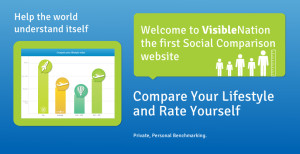Not only do half of companies not care about disruption, 10% of them don’t think digital affects them at all.
Disruption in technology from innovators is rife, so traditional companies should be wetting themselves, right?
Not according to the Digital Disruptors’ report released from from Dell EMC, which describes whether UK businesses are aligning to the threat of digital disruptors in their market.
Astonishingly, more than half of UK organisations don’t view digital disruptors as a threat and 10% believe they don’t have any challengers at all.
Such data is insane, because at the same time 71% of business leaders are aware their organisation is under threat from digital transformation and more than 50% of business leaders feel their IT team has too much control and is a ‘barrier to innovation’.
Nothing like putting your head in the sand while looking the other way while turning a blind eye while turning a deaf ear.
The report focuses on which areas are going to be differentiators for businesses in the future. Which are on path to be disrupted and who will remain stagnant and face being overtaken by competition?
If this data is to be believed, at least 50% of them.
“Disruption isn’t new. Organisations of all sizes face new competition and changing market forces all the time. Digital disruptors have already shown their impact with everything from genome mapping to holiday rentals.
“In the age of disruptors, the corporate culture needs to shift to make the digital innovation agenda a focus for the whole board, not just the IT team,” said said Claire Vyvyan, Senior VP UK&I Commercial, Dell EMC.
* Independent research company Vanson Bourne conducted 500 interviews across the UK and Republic of Ireland. Respondents came from large companies and had to have 1000 or more employees (250+ in Republic of Ireland). Based on the size of the universe in the UK and Ireland, the margin of error for this research is 4.38%.




